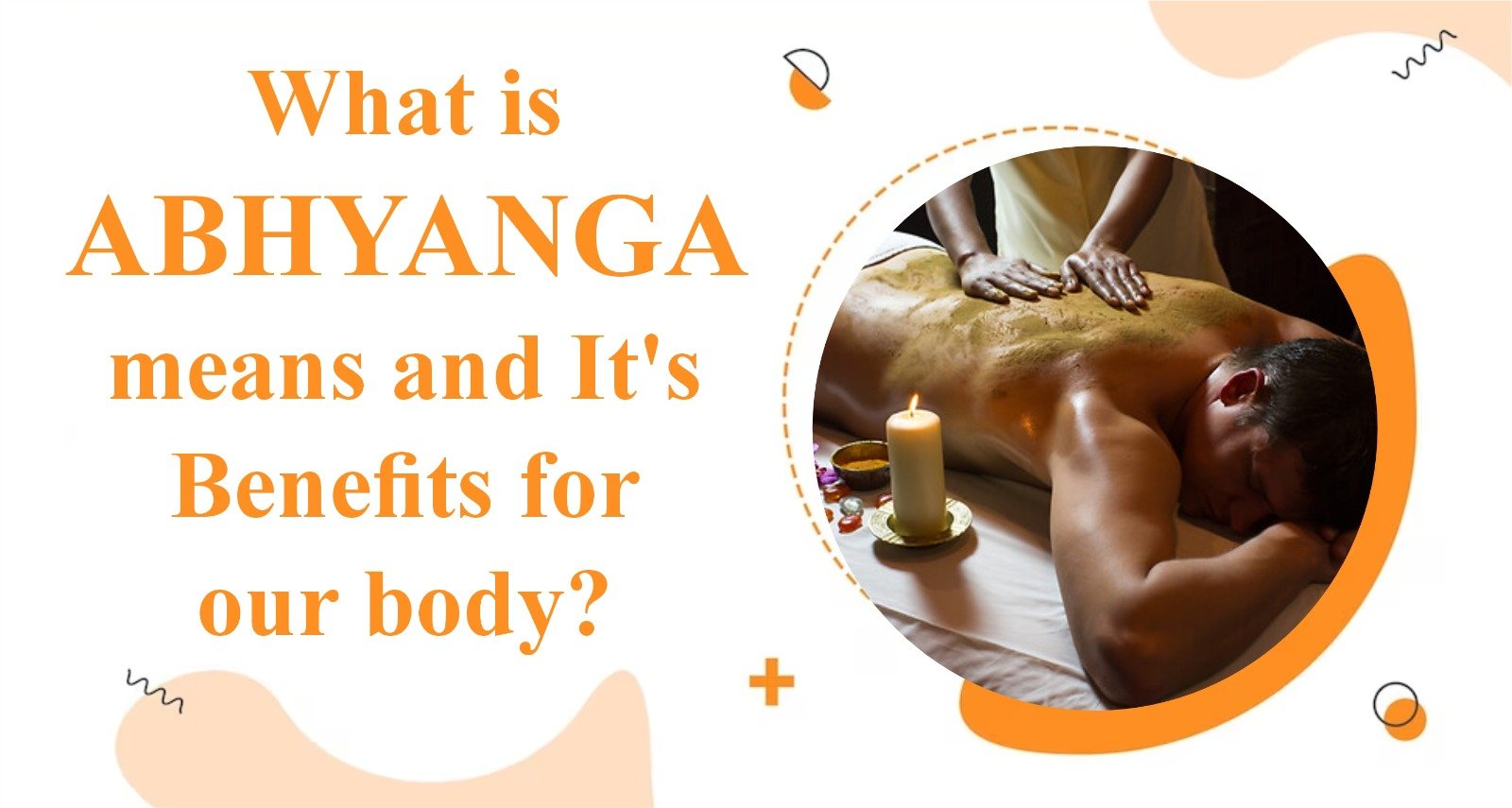Abhyanga, a term rooted in Ayurveda, is more than just a massage—it’s a holistic practice that nurtures the body, mind, and spirit. In this article, we will delve into the meaning of Abhyanga and explore the myriad benefits it offers for our overall well-being.
Abhyanga has deep historical roots, tracing its origins to ancient Ayurvedic practices. Culturally significant, this ritual has been passed down through generations, standing the test of time as a therapeutic tradition.

At its core, Abhyanga involves a unique combination of oils and a specific massage technique. This section will provide a comprehensive understanding of the components involved and shed light on traditional oils preferred for this practice.
What is Abhyanga?
Abhyanga is an Ayurvedic practice that involves the application of warm oil to the body. It is a form of self-massage or massage performed by another person, and it is considered an integral part of the Ayurvedic daily routine. The word “abhyanga” is derived from Sanskrit, where “abhi” means “into” and “anga” means “limbs” or “body parts.”
During abhyanga, a specific type of oil, often medicated or herbal, is used to massage the entire body, including the head and scalp. The oil is typically heated to a comfortable temperature before application. The massage is done with long and gentle strokes, following the natural direction of the body’s muscles and joints.
Benefits of Abhyanga for our Body
Abhyanga, a traditional Ayurvedic practice, is the art of self-massage using warm oil. According to Ayurveda, the ancient system of medicine from India, Abhyanga offers a myriad of health benefits. Here are the benefits explained in detail
- Balancing Doshas:
- Ayurveda recognizes three doshas – Vata, Pitta, and Kapha – representing different combinations of the five elements (earth, water, fire, air, and ether). Abhyanga helps balance these doshas, promoting overall health and well-being.
- Improved Blood Circulation:
- The rhythmic and gentle strokes of Abhyanga enhance blood circulation, ensuring that nutrients are efficiently transported throughout the body. This can contribute to improved organ function and enhanced vitality.
- Stress Reduction:
- The calming effect of Abhyanga on the nervous system helps reduce stress and anxiety. The massage stimulates the release of feel-good hormones, such as serotonin and dopamine, promoting a sense of relaxation and emotional well-being.
- Joint Lubrication:
- Abhyanga helps lubricate joints and increase flexibility. The warm oil penetrates deep into the tissues, reducing stiffness and promoting the health of muscles and joints.
- Detoxification:
- The process of Abhyanga aids in the removal of toxins from the body. The massage techniques stimulate the lymphatic system, facilitating the elimination of waste and promoting detoxification at a cellular level.
- Improved Sleep Quality:
- Regular Abhyanga is believed to promote better sleep by calming the nervous system and inducing a state of relaxation. This can be particularly beneficial for individuals dealing with insomnia or irregular sleep patterns.
- Enhanced Skin Health:
- Abhyanga nourishes the skin, making it softer, smoother, and more radiant. The massage promotes healthy skin function, helps reduce dryness, and may even alleviate certain skin conditions.
- Boosted Immunity:
- The massage stimulates the production of white blood cells and enhances the immune system’s efficiency. This can contribute to better defense against infections and diseases.
- Improved Digestion:
- Abhyanga supports healthy digestion by calming the nervous system and promoting a balanced state in the body. This, in turn, can positively impact the digestive process and nutrient absorption.
- Anti-Aging Effects:
- Regular Abhyanga is thought to have anti-aging effects by promoting the health of tissues and improving the flow of vital life force (prana) throughout the body.
- Emotional Balance:
- Ayurveda believes that emotions are connected to the doshas. Abhyanga helps balance these doshas, promoting emotional stability and resilience.
- Impact on Mental Well-being: Beyond the physical, Abhyanga has profound effects on mental health. Discover how this ritual acts as a stress-reducer and promotes a state of relaxation in our fast-paced lives.
- Enhancing Circulation through Abhyanga: Improved blood flow is a key benefit of Abhyanga, influencing overall health positively. This section will explore the science behind increased circulation and its far-reaching effects.
Conclusion of Abhyanga
In conclusion, Abhyanga stands as a cornerstone in Ayurveda, offering a wealth of benefits that transcend mere physical well-being. This ancient practice, rooted in the wisdom of balancing doshas and harmonizing the body, mind, and spirit, provides a holistic approach to health maintenance. From its ability to alleviate stress and enhance blood circulation to promoting joint flexibility, detoxification, and emotional balance, Abhyanga emerges as a comprehensive tool for fostering a state of optimal well-being.
The rhythmic strokes and warm oil employed in Abhyanga contribute not only to the outer glow of the skin but also to the inner balance of the body’s vital systems. Its influence on sleep quality, immunity, and digestive health underscores its profound impact on various facets of our lives.
In a world where wellness is increasingly recognized as a holistic pursuit, Abhyanga offers a timeless and accessible path to achieving balance and vitality. Incorporating this practice into our routines becomes an investment in our long-term health, aligning with the fundamental principles of Ayurveda. As a ritual that goes beyond mere physical therapy, Abhyanga beckons us to embrace a lifestyle that nurtures the body, soothes the mind, and uplifts the spirit – a true embodiment of the holistic approach to health and well-being.
FAQs
- Is Abhyanga suitable for everyone?
- Abhyanga is generally safe for most individuals, but it’s advisable to consult with a healthcare professional, especially for those with specific health conditions.
- Can I practice Abhyanga daily?
- While daily practice is encouraged, the frequency can be adjusted based on individual preferences and schedules.
- Are there specific oils recommended for Abhyanga?
- Ayurveda suggests different oils based on body types (doshas). Experimenting with various oils can help find the most suitable one for you.
- How long should an Abhyanga session last?
- Ideally, a session can range from 15 to 30 minutes, but it’s essential to listen to your body and adjust accordingly.
- Can Abhyanga help with specific skin conditions?
- Abhyanga’s nourishing properties can benefit various skin conditions, but individuals with specific concerns should seek advice from a dermatologist.

